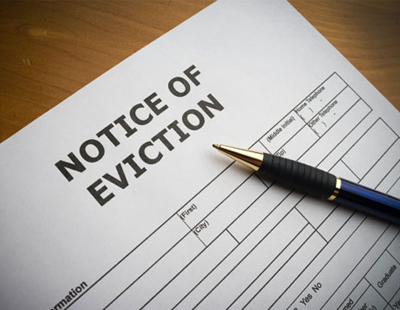
High profile eviction company Landlord Action says as many as 50 per cent of Section 21 cases it handles involve tenants wanting to be re-housed by the council.
And the firm says the abolition of Section 21 and subsequent expansion of Section 8 - as proposed by the government and broadly supported by other political parties - could put thousands of tenants at greater risk of receiving a County Court Judgement and ending up homeless because councils will not be obliged to re-house them.
According to Landlord Action, 95 per cent of Section 8 cases are for mandatory two months’ rent arrears.
It is unknown how many Section 21 cases are as a result of rent arrears, but Landlord Action says it is the number one reason landlords serve notice.
Data from the Ministry of Justice reports that there were 22,527 accelerated possession claims issued in 2018 (Section 21 claims). Of those accelerated possession claims under Section 21, 10,127 resulted in evictions carried out by County Court bailiffs.
Therefore, if landlords are forced to use Section 8 route in the future, thousands more tenants will have rent arrears judgements against them, rather than simply being evicted using Section 21.
In addition, more tenants could find themselves with a County Court Judgement, which will severely impact their future credit rating.
“Local councils will see when a tenant has a rent arrears possession order made against them so will consider that that tenant has made themselves homeless. Therefore, the council will not be obliged to re-house them as they do at present under Section 21 accelerated procedure” warns Landlord Action founder Paul Shamplina.
“If those tenants cannot get accommodation in the private rented sector and cannot be re-housed by the council, what will happen to them?”
Shamplina is also concerned that the figures suggest the number of Section 8 hearings will double because landlords previously using Section 21 will instead use Section 8.
“As well as a rise in homelessness, I believe there will be many other unintended consequences following the abolition of Section 21. These will include, but not be limited to; vulnerable tenants struggling to find accommodation as landlords become more selective; a surge in Section 21 claims as landlords feel increasingly powerless and opt to exit the market” cautions Shamplina.
“A shrinking private rented sector will result in further rent rises for tenants. In addition, unless anti-social behaviour is tackled within the reforms, unruly tenants will have the opportunity to remain in properties for longer causing landlords and their neighbours unnecessary stress” he adds..
The government consultation on Tenancy Reform, including scrapping Section 21, ends on 12th October.













%20-%20IMAGE%20Client%20Accounting%20%E2%80%93%20what%20are%20your%20options.jpg)





Join the conversation
Jump to latest comment and add your reply
Not ' Rocket-science ' but beyond the grasp of the political parties very limited knowledge of the Housing sector - despite their frequent interventions that continuously back-fire.
( Never mind the impact on Tenants though, as long as the parties keep hood-winking them into parting with their votes )
But lets be fair, if the politicians can't see the correlation, its unlikely that Tenants will.
Please login to comment